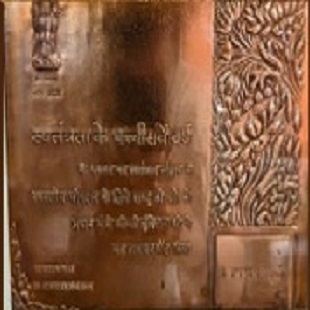Jagannath Majumdar was born on October 9, 1911, in Yadu-Boira village, situated in the Nadia district of present-day West Bengal. His father, Srish Chandra Majumdar, served as a clerk in the lower court.
Jagannath Majumdar's journey as a freedom fighter commenced at the young age of 15, during his time at Krishnanagar Collegiate School, where he actively joined the anti-British movement. Influenced by eminent revolutionaries like Ananta Hari Mitra and literary figures such as Bijoy Lal Chattopadhyay, he became associated with the Jugantar and actively participated in the Bengal Provincial Congress. In 1928, he played a significant role as an organizer during the Basirhat conference of the Bengal Provincial Congress.
In January, he organized a clandestine meeting at Krishnanagar College to plan the celebration of Purna Swaraj Day on January 26, 1930, which was declared India's Independence Day by the Congress. During this event, the students pledged to hoist the Indian national flag on the college building, leading to protests and strikes in response to police attacks. For his active involvement in the Civil Disobedience movement, Jagannath was arrested and spent three years in Buxa Fort jail without trial, where he continued his studies alongside his incarceration. In 1936, he managed to complete his law degree from Calcutta University, despite facing intermittent jail terms.
In 1941, Jagannath Majumdar assumed the role of General Secretary of the Nadia District Congress Committee and actively mobilized people during the Quit India Movement in 1942. Collaborating with Haripada Chattopadhyay, they disrupted the British administration by damaging infrastructure and government buildings. Their attempts to collect dynamite and picric acid for a railway bridge explosion in Alamdanga came close to fruition, but eventually, after eight months on the run, he was arrested in Kolkata's Ballygunge area. He was transferred to Krishnanagar jail and later taken to Delhi Central Jail. Despite a failed mock trial in the "Delhi Conspiracy Case" that sought to implicate him, he was eventually released in September 1945, following several months of house arrest. He spent a total of 12 years suffering in British jail custody.
In recognition of his courageous and unwavering dedication to the cause of independence, in 1972, the Prime Minister honoured Jagannath Majumdar with a Tamra Patra.

Copper Plate awarded by the Government of India in 1972
Source: Dipen Dutta, Contributor for CCRT